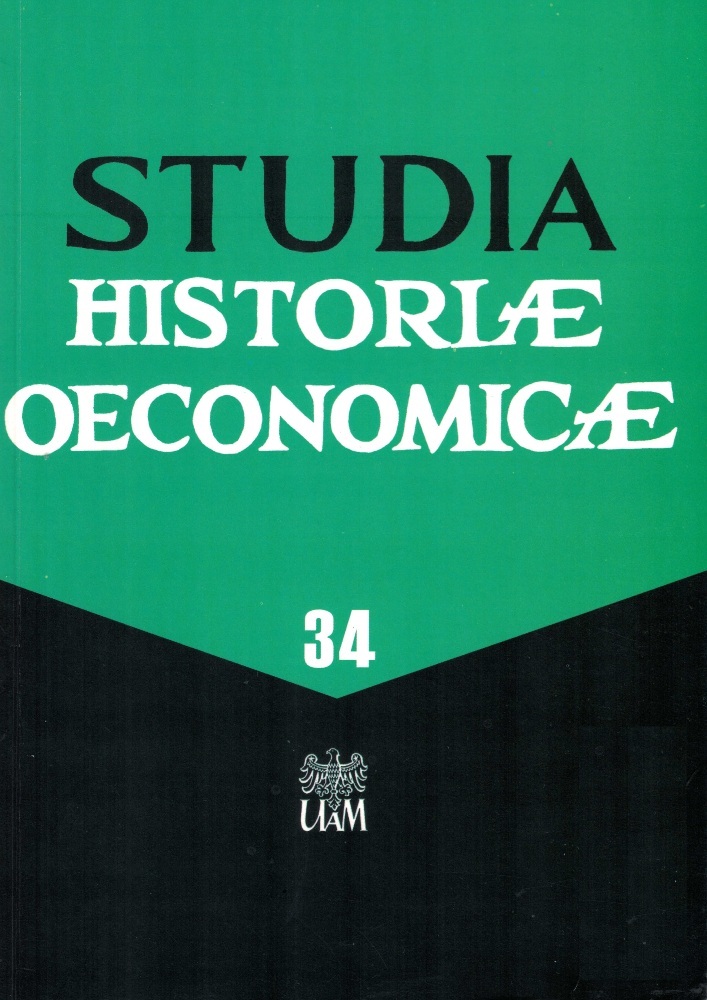Abstract
It might seem natural to think that the socialist model of the economy, and a reality where collective property prevailed, eliminated the problem of financial crime. But did it really? This paper, which presents the scale of this type of crime as reflected by GUS (Polish Central Statistical Office) statistics, is an attempt at answering this question. At the same time we would like to present the “3 Cs” model (circumstances, character, chance), in which all the “C” factors occurred simultaneously, but on each occasion each of these had a different impact on the particular criminal act.
References
Journal of Laws, 1932, no. 50, item 571 – The criminal code: presidential regulation of July 11, 1932.
Journal of Laws, 1952 no. 33, item 232 – The Constitution of the Polish People’s Republic of July 22, 1952.
Journal of Laws, 1969, no. 13, item 94 – The criminal code: the Act of April 19, 1969.
Bednarski M. (1992), Drugi obieg gospodarczy. Przesłanki, mechanizmy i skutki w Polsce lat osiemdziesiątych [The parallel economy. Causes, mechanisms and results in Poland in the 1980s], Wydawnictwo Uniwersytetu Warszawskiego, Warsaw.
Chłopecki J., Firlit E. (1987), Kiedy kradzież nie jest kradzieżą [When a theft is not a theft], “Zdanie” no. 3, p. 6-11.
Cyprian T. (1958), Próba określenia przestępstwa gospodarczego: pojęcie całości stosunków gospodarczych [An attempt to define financial crime: understanding all economic relations] “Ruch Prawniczy i Ekonomiczny” vol. 3, p. 17-29.
Cyprian T. (1960), Przestępstwa gospodarcze [Financial crime], Warsaw 1960.
Cyprian T. (1958), Próba określenia przestępstwa gospodarczego: pojęcie całości stosunków gospodarczych [An attempt to define financial crime: understanding all economic relations] „Ruch Prawniczy i Ekonomiczny” vol. 3, p. 17-29.
Górniok O. (1986), Przestępczość gospodarcza: wybrane przejawy i uwarunkowania [Financial crime: selected symptoms and conditions], Katowice.
Kalecki M. (1962), Próba wyjaśnienia zjawiska przestępczości gospodarczej [An attempt to explain the problem of financial crime], “Kultura i Społeczeństwo” no. 3, p. 73-77.
Lernell L. (1965), Przestępczość gospodarcza: zagadnienia społeczno-ekonomiczne [Financial crime: social and economic issues], Warsaw.
Majchrzak I. (1966), Pracownicze przestępstwo gospodarcze i jego sprawca [Financial crime of employees and its perpetrators], Warsaw.
Majchrzak I. (1965), Przestępstwo w zakładzie pracy [Crime in the workplace] [in]: “Socjologiczne problemy przedsiębiorstwa przemysłowego” [Sociological problems of industrial plants] (ed.) A. Sarapata, Warsaw.
Marecki J. (1962), Przestępczość gospodarcza: mechanizm i środki zaradcze [Financial crime: the mechanism and preventive measures], “Kultura i Społeczeństwo” vol. 3, p. 57-72.
Narojek W. (1973), Społeczeństwo planujące. Próba socjologii gospodarki socjalistycznej [The planning society. A sociological attempt to define socialist economy], Warsaw.
Pawełko W. (1971), Zapobieganie przestępstwom gospodarczym [Preventing financial crime], Warsaw.
Świda W. (1960), Wpływ zmiany ustroju na przestępczość [The influence of systemic transformation on crime], Wrocław.
Tymiński M. (2002), Malwersacje w przedsiębiorstwach socjalistycznych w Polsce (1950-1970) [Fraud in socialist companies in Poland (1950-1970)], “Dzieje Najnowsze”, no. 4, p. 97-113.
Tymowski A. (1977), Struktury społeczne – nowe aspekty badań [Social structures – new aspects of research], “Odra”, no. 6.
Wyka K. (1984), Życie na niby. Pamiętnik po klęsce [Fake life. Life after the defeat], Kraków.
License
Copyright (c) 2016 Lucyna Błażejczyk-Majka, Roman Macyra

This work is licensed under a Creative Commons Attribution-ShareAlike 4.0 International License.





